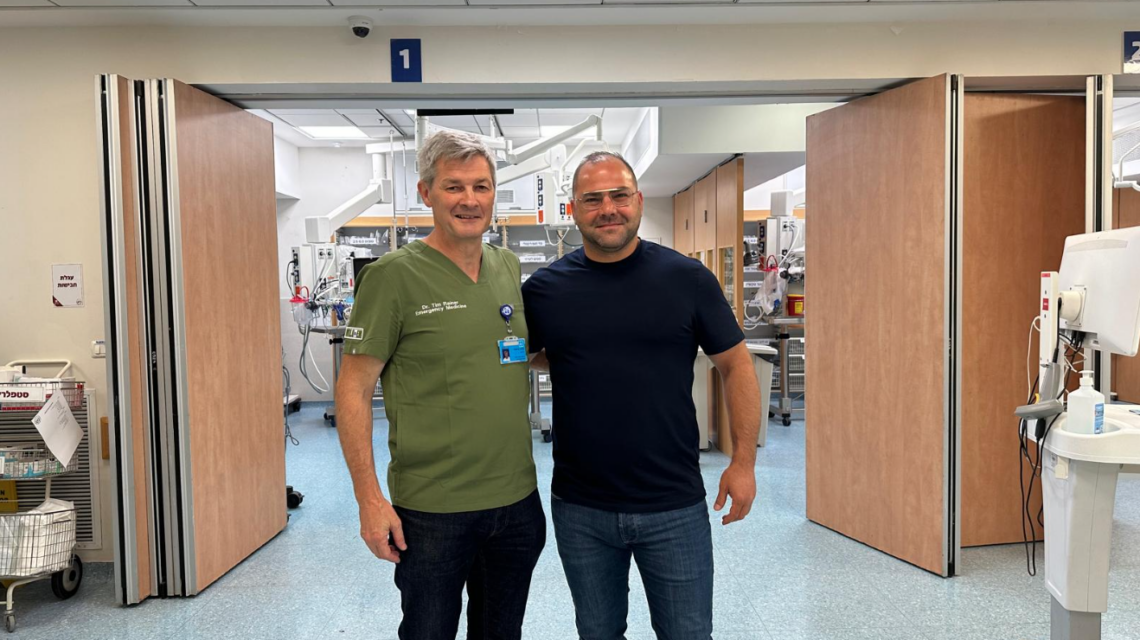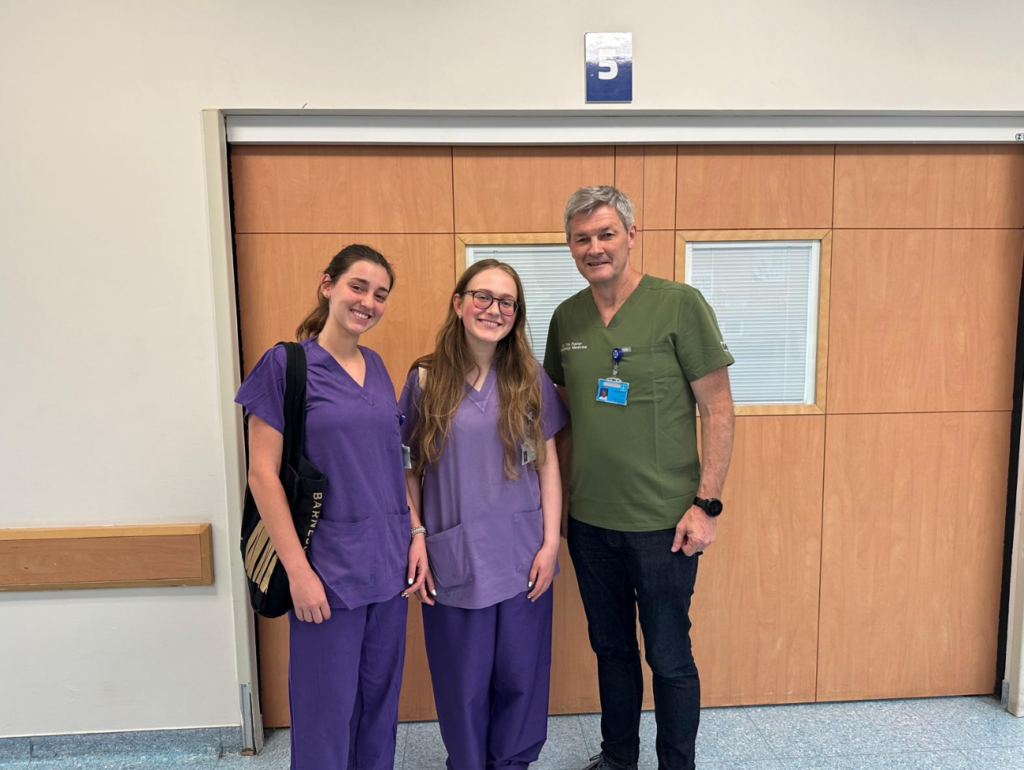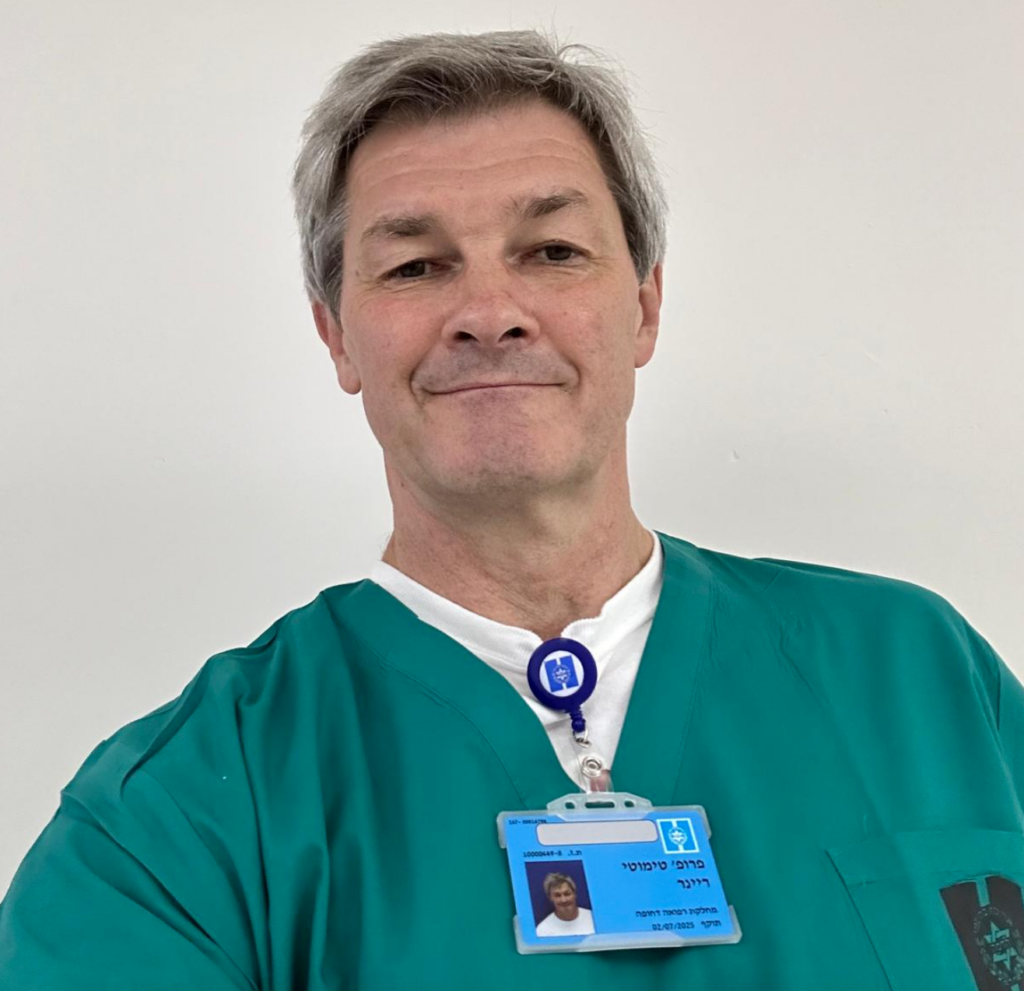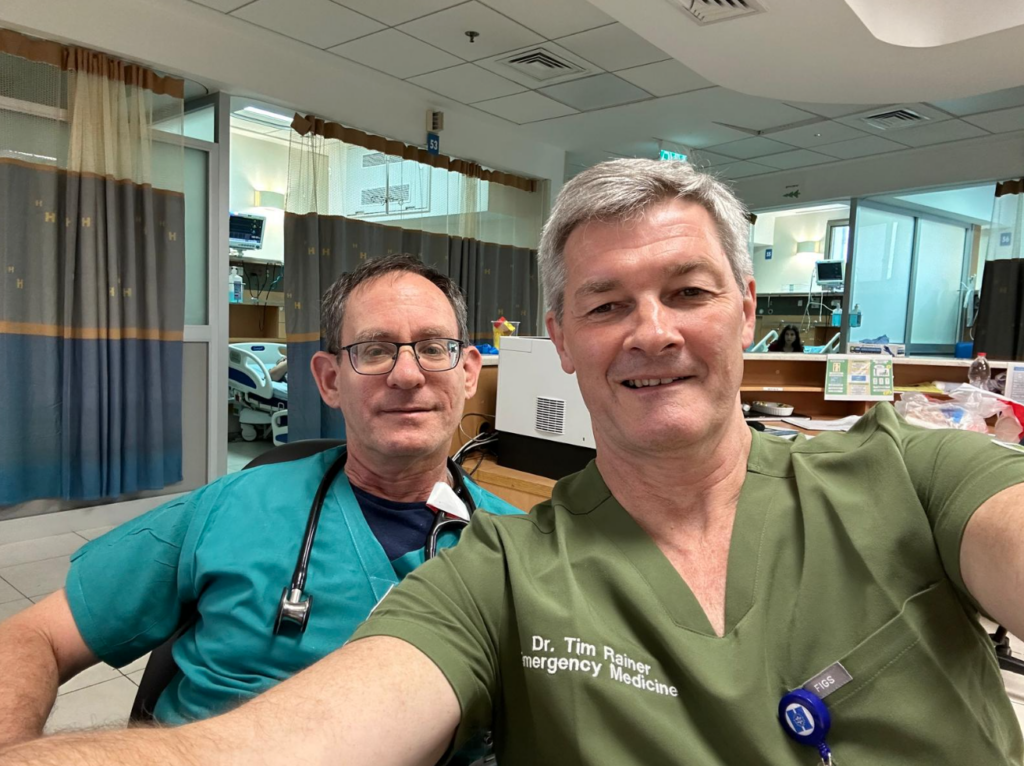
Timothy Rainer is a distinguished Professor of Emergency Medicine at The University of Hong Kong whose love of Israel and a passion to help others in the most urgent need have driven him to volunteer for two weeks at the Emergency Department in Hadassah Ein Kerem. Originally from the UK, Dr Rainer has lived in Hong Kong since 1996. This is Dr. Rainer’s ninth visit to Israel, the first of those being in 1987 when he toured Netanya for his honeymoon. A devoted christian, he has found in his faith a strong connection to the land and people of Israel.
“My visit to Israel was made possible to a large extent because of Milu-EM” he says- Milu-EM is a network of experienced volunteer emergency medicine specialists from around the world who support Israel’s emergency medicine. He mentions he is very grateful and appreciative of their work.
His objective was not only to support the israeli people, by showing up, helping with teaching in the hospital, and just being an attentive ear to those around him but also, very importantly, to keep exploring options for collaboration between Hadassah and his current work in Asia.
“I think that number one, what people most value is understanding. They value that someone is listening to their story. From the point of view of the ER, I support them through teaching, further education, continuing medical education and understanding how things are being done internationally, it’s always good to know what people are doing elsewhere. And, you know, you may consider them for the future”.
His previous visits to Israel still left room for surprises on how the country is still operating in the midst of war: first, he thought things would be a little more organized. “It’s actually cultural, it’s not just, you know, one department or one hospital or, let’s say it’s a bit free, which is good. I mean, a free way means that things aren’t always organized and clear”. The other thing that stood out
“The second thing that surprised me is that at least outwardly people, life goes on quite normally as if almost nothing happened, at least this is in Jerusalem. Closer to the border, or conflict things might be very different”. And finally, the other thing that still surprises me is when you actually meet someone whose family, or friends, whether they lost their lives on October 7, or people were taken hostages, or their family is currently at a frontline in very dangerous situations. You know, these people’s stories are quite shocking”.
“So you can’t quite get the feeling or the sense of it from abroad. I mean, you hear stories, they’re pretty accurate but when you speak to someone, face to face, and you look at them in their face, and hear their emotion very directly”.
“People want peace. They know they need to hope for peace, they need to work for peace but not sure how much peace is achievable. This is quite a conflict I think in, in people as they share that story. So like it’s a desire but they almost think it’s not achievable”
-How do you find the coexistence of different religions and cultures happens at Hadassah?
When the country is under attack, actually everyone is attacked, when the rockets come, they fall on everyone. And so I think there’s a very strong sense of solidarity within Hadassah and in the whole of Israel. I’m sure it varies from city to city and, and place to place, but within is a strong desire to work all together. Different racial groups, different religions. Strong teamwork, strong teamwork”.
-Do you have any special stories that you think you will take back home to family and friends?
“One story is from a doctor I met. He was called up as a reservist in the army on October 7th and worked in Gaza for seven months. The psychological and social trauma, the personal trauma that he and his family have gone through is something people might not fully realize. Surviving a war, coming back uninjured, but then dealing with what you’ve seen and experienced—that’s a very strong impact.”
“Another story is about the overwhelming situation on October 7th. In most disasters, the number of patients goes up, but so do the number of doctors as people come in to help. However, on October 7th, many doctors were called to help with the war effort, and every hospital was completely overwhelmed. About 40% of ER doctors went to the reserve units, to the frontlines. Diverting patients to other hospitals wasn’t an option because all were at max capacity.”
“Lastly, I had a conversation with a Jewish lady about our faiths. I shared with her that I’m a Christian and how my strong motivation to come to Israel stems from my faith. We talked about Jesus, his Jewish heritage, yoshua, and the early churches being Jewish. It was unusual for her to hear a Christian emphasize Jesus’ strong Jewish roots. I told her, ‘If Jesus is my Messiah and I’m a Christian, and Jesus is Jewish, how can I not support the Jewish people?’”



